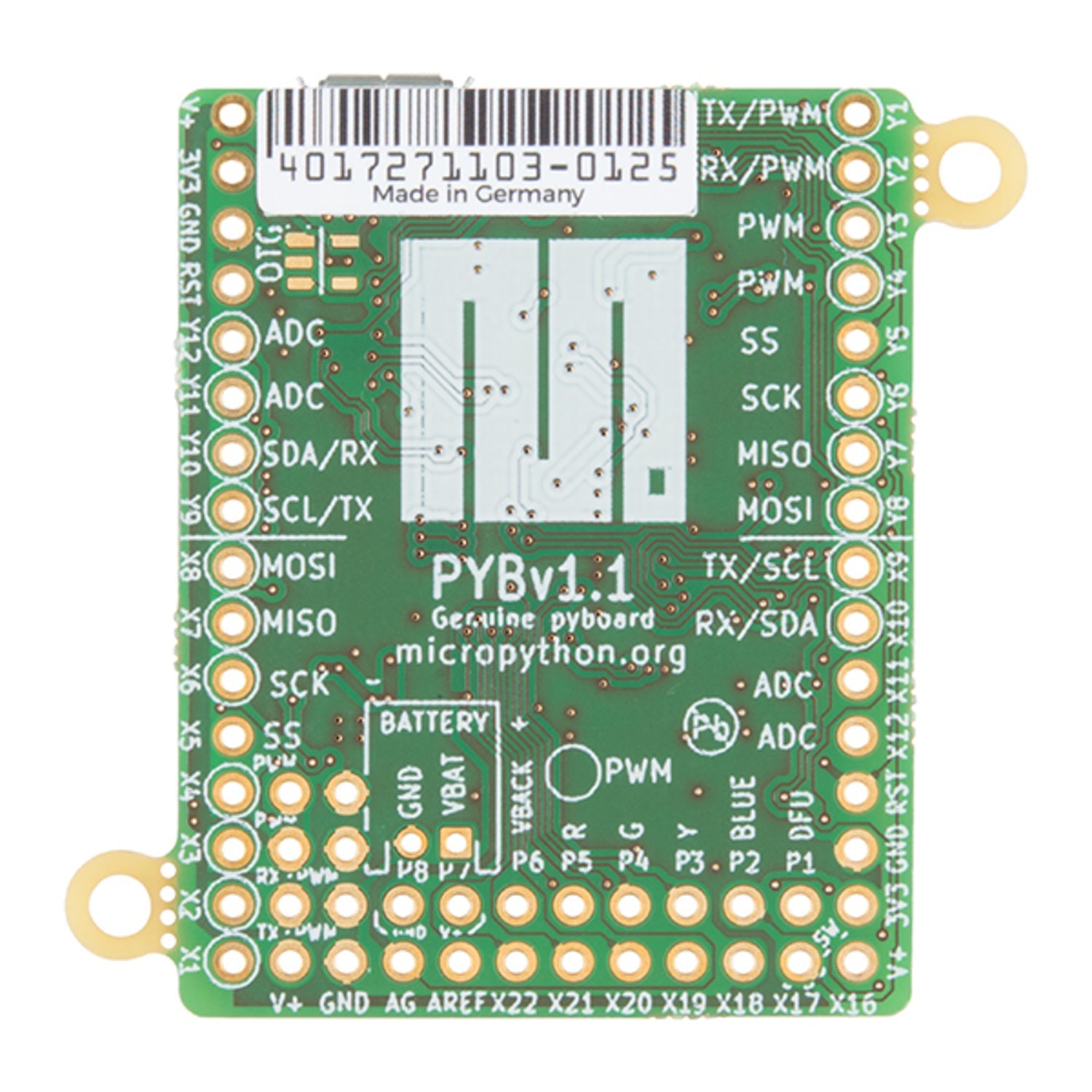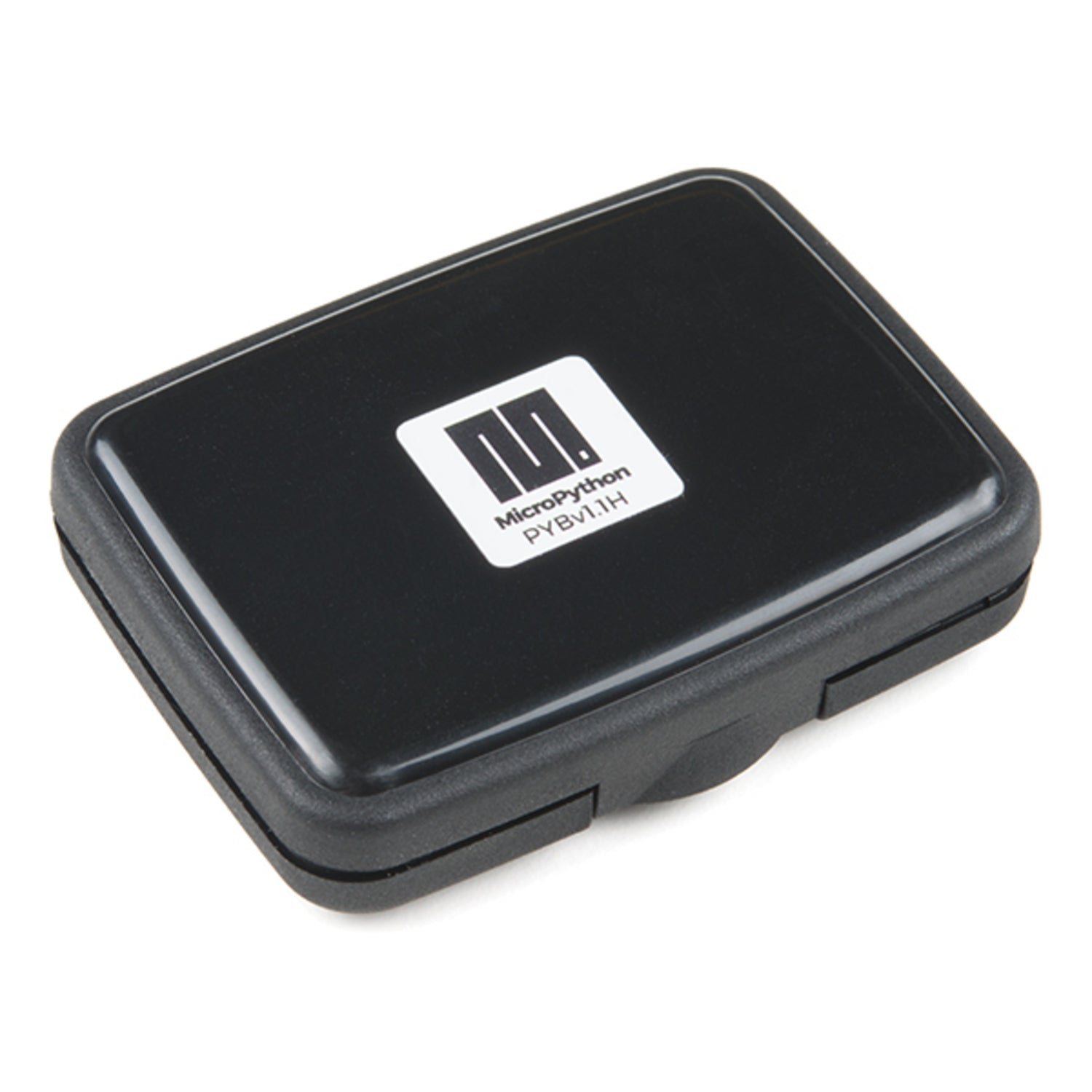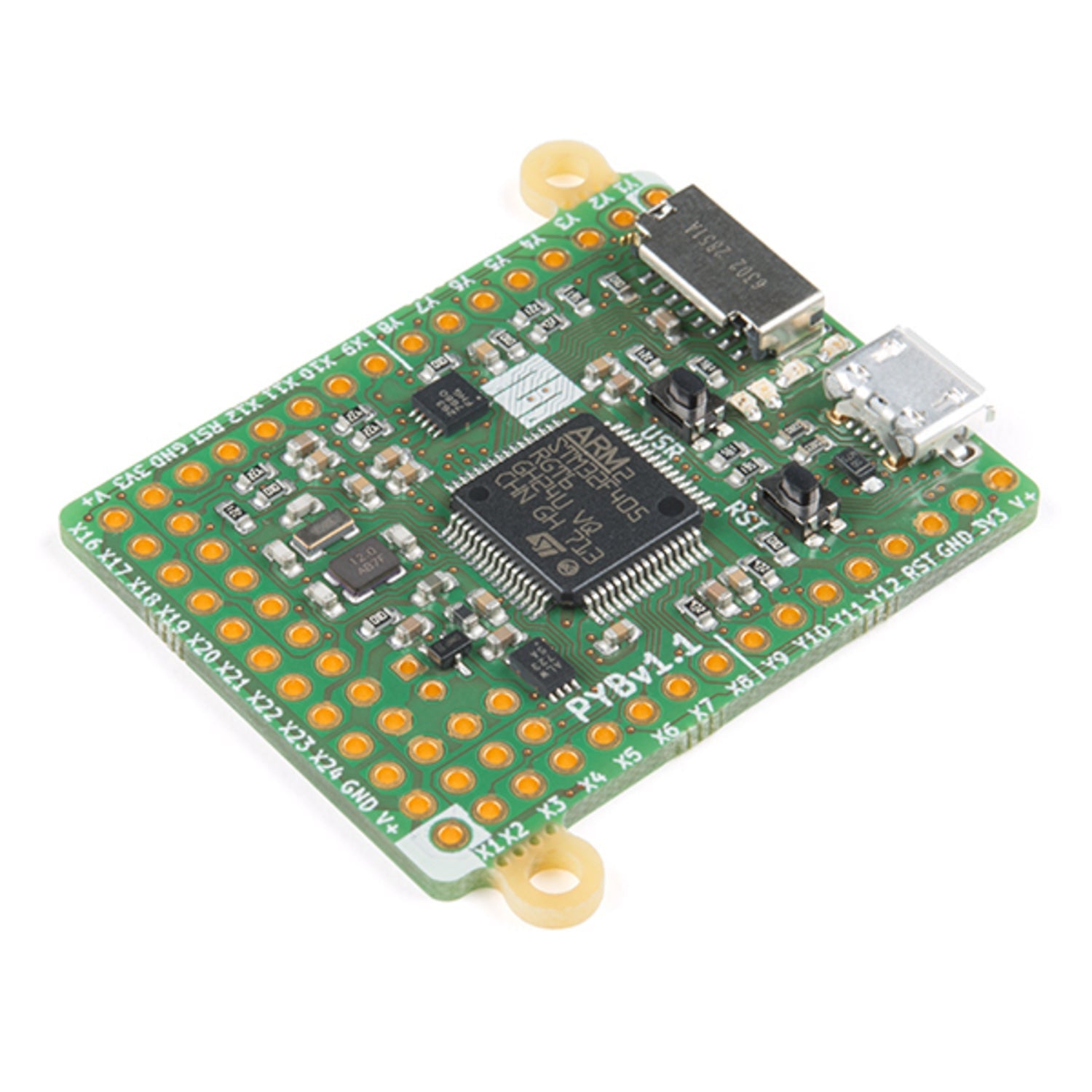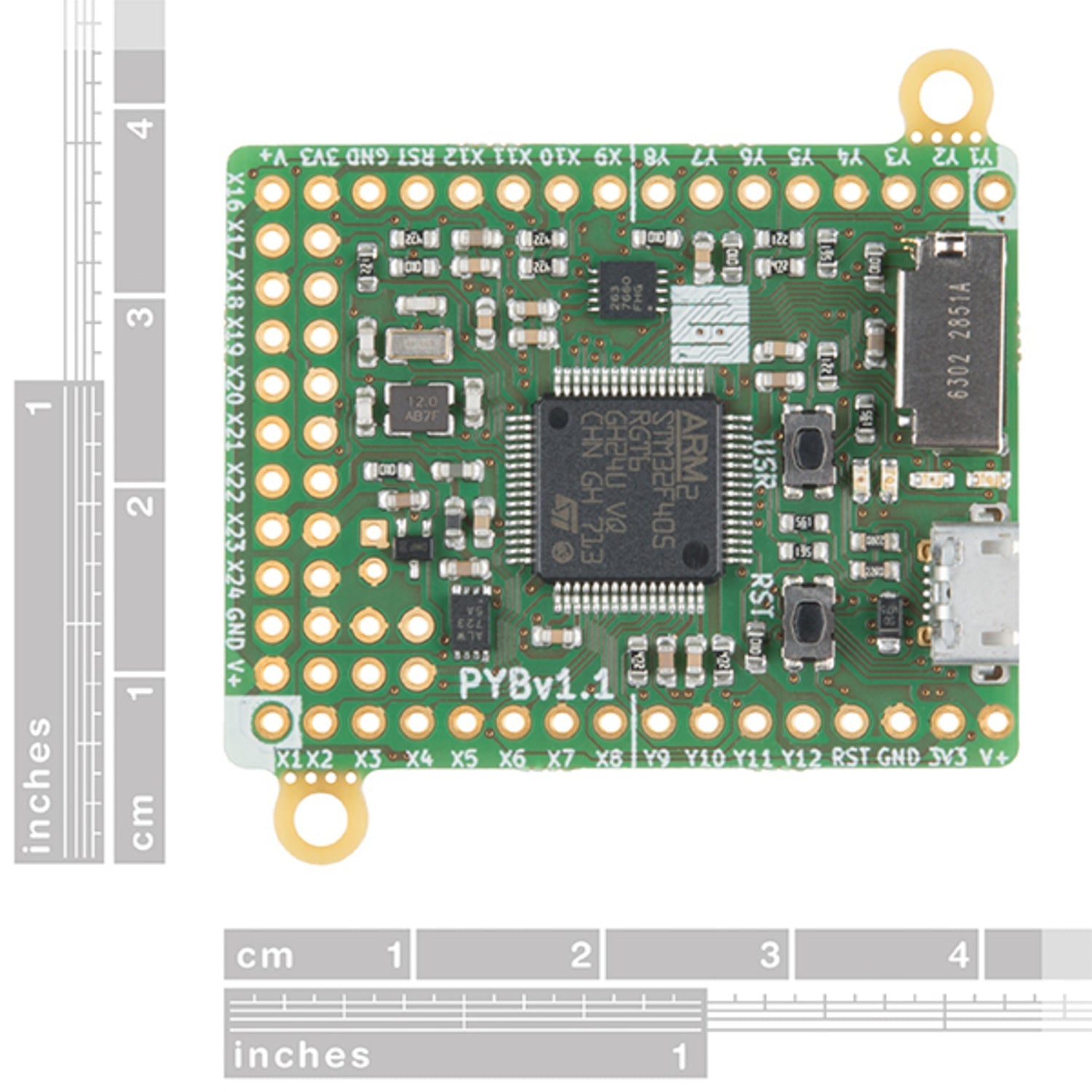The MicroPython Pyboard v1.1 is a super - handy and potent electronics development board that runs MicroPython. Simply connect it to your PC via USB, and you'll get a USB flash drive to save your Python scripts right away, along with a serial Python prompt (REPL) for quick programming. With this board, you have a low - level Python operating system at your fingertips, which can control a wide range of electronics projects. The heart of the pyboard is a STM32F405RG microcontroller with a 168 MHz Cortex M4 CPU, 1024KiB flash ROM, and 192KiB of RAM. Each board comes with a microUSB connector for power and serial communications, a microSD card slot, an MMA7660 3 - axis accelerometer, 31 GPIO, four LEDs, a reset switch, and a user switch. You can choose between a version with headers and one without. MicroPython is a full - fledged rewrite of Python (version 3.4) for microcontrollers. It's optimized for efficient running and low RAM usage. It runs bare - metal on the pyboard, giving you a Python - based operating system. The built - in pyboard module has functions and classes to manage board peripherals like UART, I2C, SPI, ADC, and DAC.




Using the MicroPython Pyboard v1.1 is easy. First, connect the board to your PC through the microUSB connector. This will give you access to a USB flash drive where you can save your Python scripts. You can also use the serial Python prompt for instant programming. When starting a new electronics project, remember to choose the right version of the board - with or without headers - based on your needs. To maintain your pyboard, keep it in a clean and dry place. Avoid exposing it to extreme temperatures or moisture. If you use the microSD card slot, make sure to insert and remove the card gently. When programming, take advantage of the built - in pyboard module to control the board's peripherals. If you face any issues, double - check your connections and Python code. Have fun creating amazing electronics projects with your pyboard!